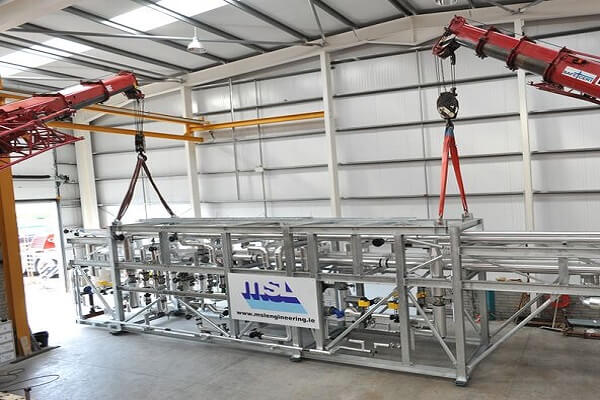What makes prefabrication a game-changer for production equipment construction? This method offers efficiency and flexibility that traditional construction methods simply can’t match. By using pre-manufactured components, time and costs are significantly reduced. Let’s explore how it is transforming the construction of production equipment.
Streamlining Construction with Modular Techniques
Modular fabrication changes how production equipment is built by incorporating pre-fabricated modules that can be assembled on-site. This approach offers faster construction timelines compared to conventional building methods. Pre-manufactured parts are created in controlled environments, reducing on-site construction time and mitigating weather or site conditions risks.
This also leads to higher precision and fewer errors. With components being produced in a factory setting, quality control is improved, ensuring that all parts meet stringent standards. Additionally, modular systems are easily scalable, allowing for customization based on specific production needs.
Reduced Downtime
One of the most notable benefits of prefabrication is its impact on cost and downtime. Traditional methods often involve longer construction periods, which can result in higher labor costs and longer periods of production downtime. Modular techniques allow production equipment to be up and running much faster.
The pre-fabrication of components allows for simultaneous preparation of parts while the site is being prepared, reducing overall project timelines. This efficient use of time translates into lower costs for businesses, allowing them to begin production sooner and without unnecessary delays. Ultimately, this approach ensures that companies can meet their operational targets more effectively.
Choosing Trained Professionals for Prefabrication
When opting for prefabrication, choosing trained professionals experienced in this specialized method is essential. Expert builders are familiar with the complexities of assembling pre-fabricated components and ensuring that all systems function seamlessly together. Their knowledge of design, materials, and assembly techniques is critical to the success of the project.
Moreover, working with experienced professionals minimizes the risks of errors that can arise during assembly. These experts ensure that modular units are correctly integrated into the overall system, making sure the equipment operates efficiently from day one. Choosing trained professionals guarantees that the project is completed to the highest standards.
Flexibility and Adaptability for Various Industries
- Offers exceptional flexibility and adaptability, making it suitable across diverse industries.
- Ideal for sectors like manufacturing, energy production, and food processing.
- Modular systems can be customized to meet specific operational needs.
- Easily adapted to evolving industry demands, enabling quick response to market changes.
- Supports scalability and adjustment of production capacity as required.
- Prefabrication allows easier modifications to production lines.
- Ensures equipment keeps pace with technological advancements and shifting consumer demands.
Industries That Rely on Prefabrication
A wide range of industries benefit from prefabrication due to its efficiency, scalability, and adaptability. Modular systems streamline production lines in the manufacturing sector and simplify maintenance and upgrades. The energy industry, including renewable sectors like solar and wind, uses modular units for fast deployment and easy integration in remote or challenging environments.
Food and beverage processing facilities leverage modular setups to meet stringent hygiene standards while maintaining flexibility for product changes. Pharmaceutical and biotech companies depend on modular cleanrooms and labs that can be expanded or reconfigured quickly to support research and compliance needs. From industrial plants to high-tech sectors, prefabrication meets the demand for speed, customization, and operational agility.
Long-Term Durability and Maintenance Benefits
Modular systems often simplify maintenance by making replacing or repairing individual modules easier without disrupting the entire system. Since parts are pre-tested and assembled in controlled environments, defects are less likely, and maintenance can be planned and scheduled in advance.
This reduces the need for emergency repairs and extends the overall lifespan of production equipment. As a result, businesses benefit from reduced operational costs and less downtime for repairs.
Modular fabrication has revolutionized the construction of production equipment, offering faster build times, cost savings, and adaptability. With the help of trained professionals, this efficient approach ensures higher quality and durability in the final product. As companies continue to embrace this method, they can rely on modular solutions to enhance their operations and meet industry demands more effectively.


